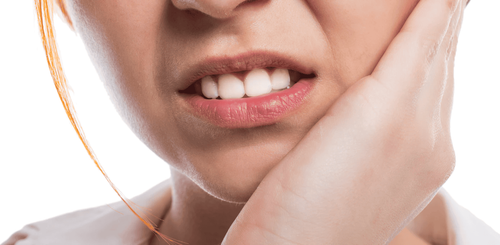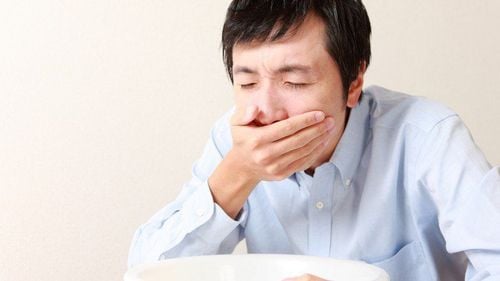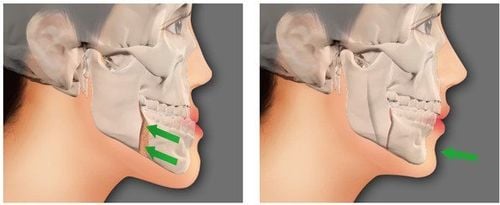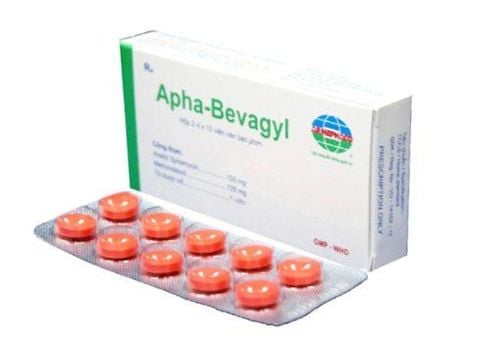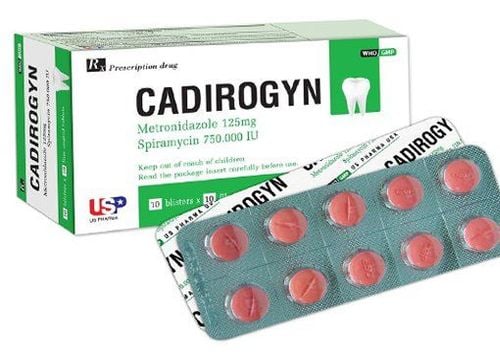This is an automatically translated article.
The article was consulted with Specialist Doctor I Nguyen Trung Hau - Doctor of Odonto-Stomatology - Department of Medical Examination & Internal Medicine - Vinmec Da Nang International General Hospital.Dentists say that although tooth loss is quite common, it is not an inevitable part of the aging process. Teeth do not die naturally, but we kill them ourselves. In other words, some kind of illness or injury is what causes your teeth to fall out.
1. Loss of teeth due to trauma
When a strong force is applied to an immobile object such as a tooth, it is more likely that you will lose your tooth. There are many types of trauma that cause tooth loss, from being hit by a baseball to biting into a frozen candy bar.Teeth are great chewing tools, but you can't use them for things like:
Remove cork or bottle caps, boxes Bite ice cubes, nut shells or unopened popcorn kernels Chew pencil or pens Hold hanger Loosen knots or tear off labels Thread trimming. Some people have a habit of biting and clenching their teeth in the face of stressful situations, but this act can also be overwhelming for your teeth. In addition, the status of the unbalanced bite mark is also worthy of attention.
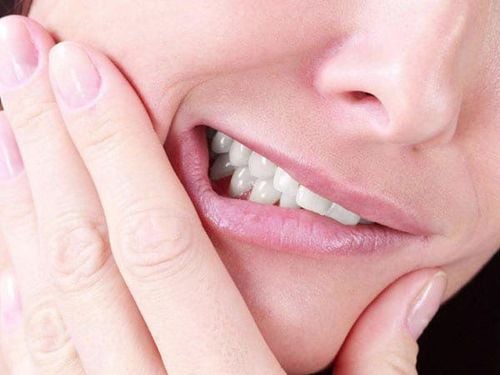
Nghiến răng có thể ảnh hưởng đến răng của bạn
2. What is tooth loss?
Plaque is an accumulation of bacteria that reside in sticky substances on the teeth, causing tooth decay and can lead to periodontal disease, which inflames the gums and destroys supporting tissues, such as ligaments and alveolar bone. . This condition can cause teeth to become loose, and eventually tooth loss.Poor oral hygiene and less frequent dental visits are major contributing factors. There are also other factors that increase the risk of periodontal disease and tooth loss, including:
Smoking Poor nutrition Diabetes Hypertension Arthritis. Hormonal changes during pregnancy can also affect a woman's response to certain medical conditions. Therefore, it is especially important to visit your dentist regularly for regular dental care throughout your pregnancy.
People with developmental delays and other disabilities are also at higher risk of tooth loss, due to limited personal hygiene and nutrition. Therefore, caregivers need to think of ways to help and limit tooth decay and tooth loss of these subjects.
Many people also ask the question: Is it okay for children to have lost their teeth? The fact that early-onset periodontal disease is also a concern. According to the dentist, a patient under 40 years old with periodontal disease is very worrisome, because this is a particularly sensitive subject.

Bệnh nha chu
3. How to prevent tooth loss?
3.1. Regular dental visits To prevent tooth loss, you need to work closely with your dentist to take care of your teeth. Make an appointment and show up for the appointments your dentist requires. How often you need to visit the dental clinic will depend on each person's specific case. The average is twice a year, but if you have gum disease, you may need to see your dentist more often.
Make sure your dentist does a full periodontal assessment for you at least annually. This means that every year, you must have the space under your gums measured with a periodontal probe and complete X-rays to assess bone levels.
3.2. Brush and floss First, you need to wash your hands. Brush your teeth twice a day with a soft-bristled toothbrush and floss once a day. In theory, you wouldn't need to floss if you could reach all parts of your mouth with a toothbrush. But the reality is that regular brushing cannot clean the entire oral cavity, so you need to floss to clean the nooks and crannies. If you don't know how to do a thorough dental cleaning, ask a professional or dentist.
Other tips to prevent bacteria growth and prevent tooth loss include:
Use a toothpaste that contains fluoride Rinse your toothbrush clean from time to time or soak it in a cup of mouthwash Leave your toothbrush completely dry after each brushing. Do not share your toothbrush with anyone.
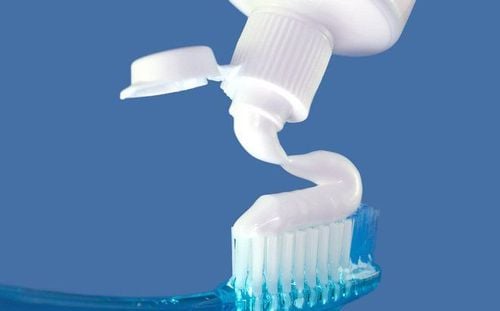
Hãy sử dụng kem đánh răng có chứa florua để ngăn vi khuẩn phát triển và bị rụng răng
3.3. Control biting and clenching Biting and grinding can wear down your teeth. Therefore, proper relaxation and stress management techniques will be of great help in preventing tooth loss. In addition, if you have a habit of grinding your teeth at night, your dentist can provide a bite guard to relieve pressure on your teeth.
3.4. Choosing the right foods to eat Although proper nutrition habits will help a lot, you do not need a special diet to avoid tooth loss. Instead, just meeting your daily needs for calcium and vitamin C, plus drinking plenty of water, is especially helpful for your teeth and gums. Experts say sugar is a super fuel for bacteria that produce acids and enzymes. So cut down on sugar or limit it to your mouth to avoid harm.
People who have lost teeth are also often restricted from eating. Specifically, people without teeth tend to eat soft, high-carbohydrate foods. They also cannot eat high-protein, high-fiber foods. While these are essential nutrients, they are especially important as we age. Such nutrient deficiencies contribute to a host of other problems, such as heart disease or diabetes.
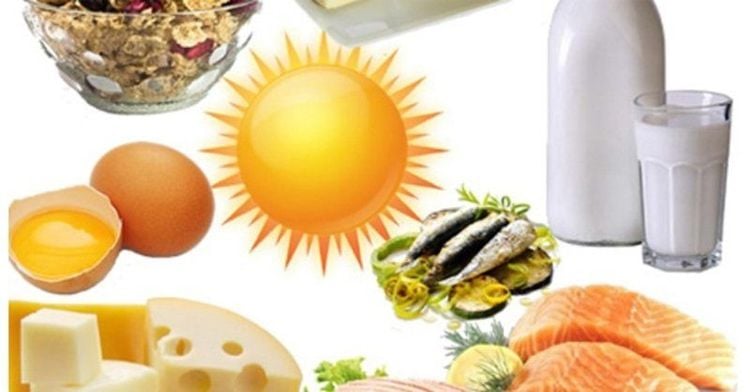
Bổ sung canxi và vitamin C là lựa chọn hữu ích cho răng của bạn
3.5. Quit smoking Smoking affects the blood supply to the gums, increasing the incidence and severity of periodontal disease.
Smokeless tobacco is even more harmful to the gums. Smokers are more difficult to treat, experts say, and their response to treatment is harder to predict. If you quit smoking, you will reduce your odds of heart disease as well as periodontal disease.
3.6. Keep good track of chronic disease If you have a chronic illness, you may need more dental care. For example, people with poorly controlled diabetes may have difficulty fighting infections and healing wounds. If you have diabetes, you need to pay special attention to controlling your blood sugar, as well as taking care of your teeth and getting regular checkups.
Contact your dentist if you see signs of periodontal disease, such as: red, painful or bleeding gums.
SEE ALSO: How long does it take for children to shake their baby teeth?
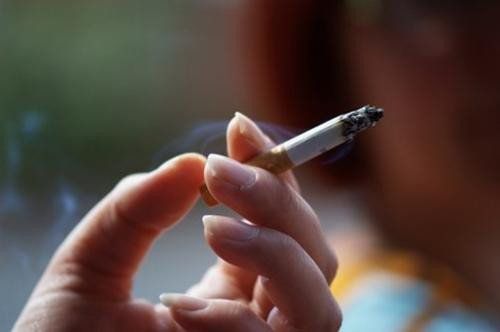
Hút thuốc làm tăng tỷ lệ mắc bệnh nha chu
4. Preventing children from losing teeth early
Parents need to pay attention: Just like other aspects, prenatal care and good nutrition can promote the healthy development of your baby's teeth. This is even more important during pregnancy, as fetal teeth begin to form in the 3rd to 5th month of pregnancy.
A few reminders for parents:
Never put a baby to bed with a bottle or sweet liquid. This will keep the sugar in your baby's mouth all night Wipe your baby's gums with sterile gauze occasionally, just before or when teeth come in When your child is learning to brush, have them stand in front with their back to you, behind face up to you, this position opens your child's mouth. Let your child use fluoride toothpaste, but make sure he spits it out after brushing Ask your dentist about sealants - a plastic coating for the chewing surface of teeth. Have your child use a mouth guard when playing contact sports. Many healthy lifestyle habits, including managing stress, maintaining a healthy weight, getting enough sleep and eating nutritious foods, can reduce the incidence of periodontal disease or slow its progression. In general, the better you take care of your body, the broader the health benefits, including prevention of tooth loss.
Vinmec International General Hospital is the address for examination, treatment and prevention of diseases, including the specialty of Odonto-Stomatology. When performing the examination process at Vinmec, customers will be welcomed and used modern facilities and equipment along with perfect medical services under the guidance and advice of experts. Good doctors, well-trained both at home and abroad.
Please dial HOTLINE for more information or register for an appointment HERE. Download MyVinmec app to make appointments faster and to manage your bookings easily.
Reference source: webmd.com



